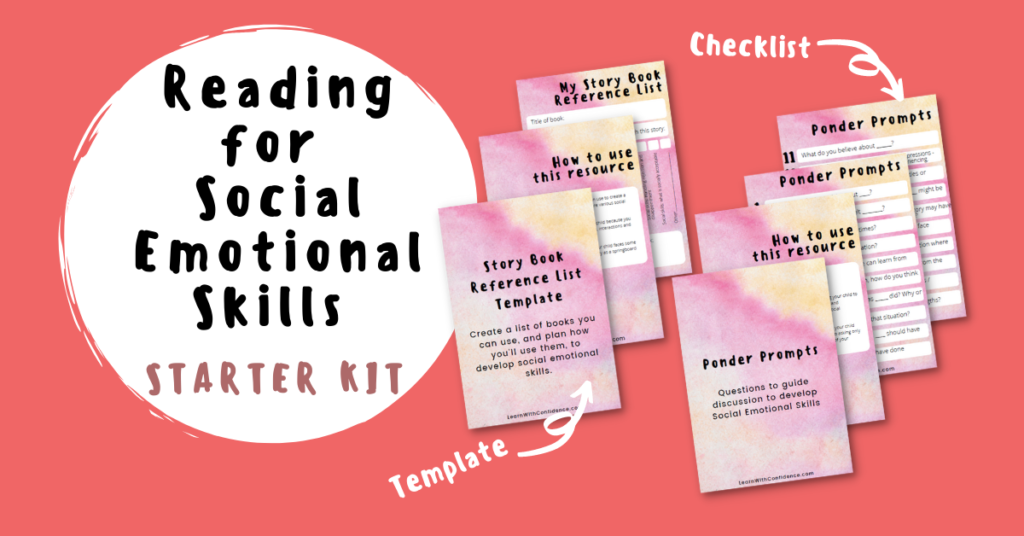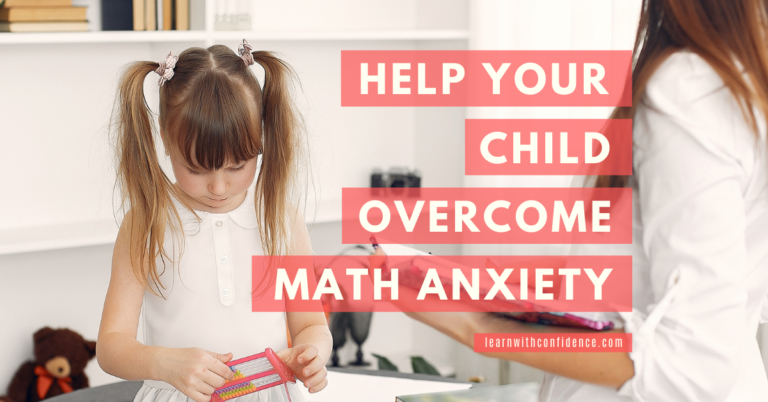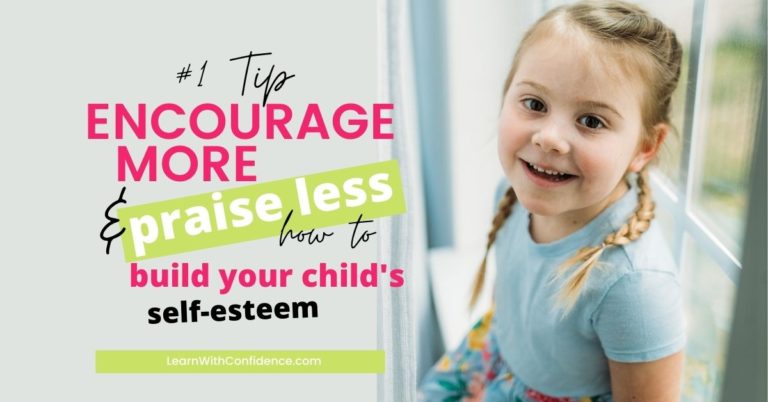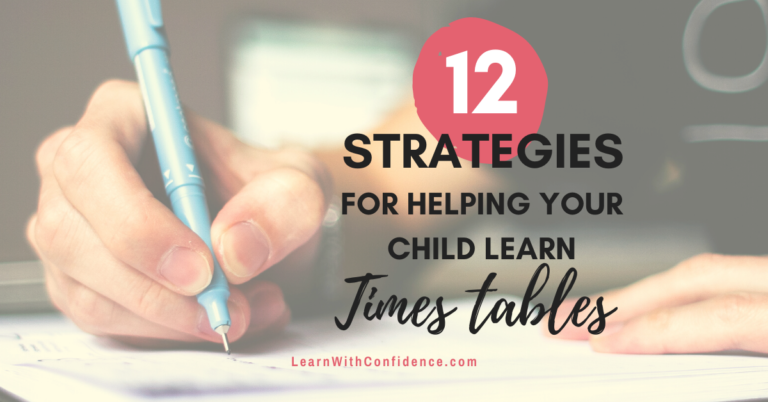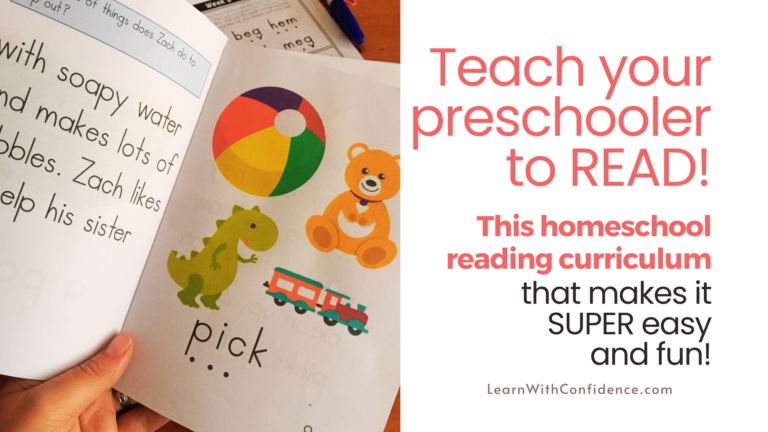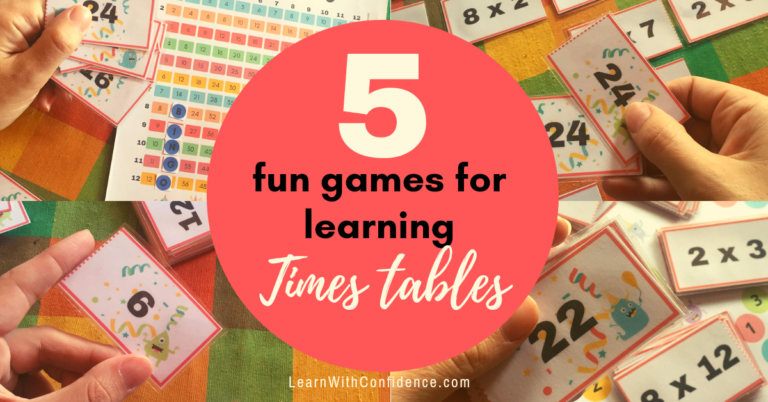“My child feels like a failure”: How to use the Power of Yet to give your child hope.
What do you do when your child feels like a failure? Children experience feelings of failure for a number of reasons, and at affects their potential for success in school in many negative ways. But there is hope! Using the Power of Yet, your child can transform those thoughts of defeat into statements of hope.
She came to my desk with a Math problem she couldn’t solve. I explained the concept again and showed her a trick or two.
Nope.
It just wouldn’t click.
“I’m just bad at Math. I can’t get it.”
Ever heard that from your child? Maybe not about Math. Maybe they’re talking about sport or playing something on the piano, or about writing or art or even doing chores.
It’s so tough as a Mama when your child feels like a failure. It can make us feel like a failure as parents too!
But the little tool I’m going to share with you today is all about changing that around, so your child can start to believe they can be a success – and if not now, definitely one day!
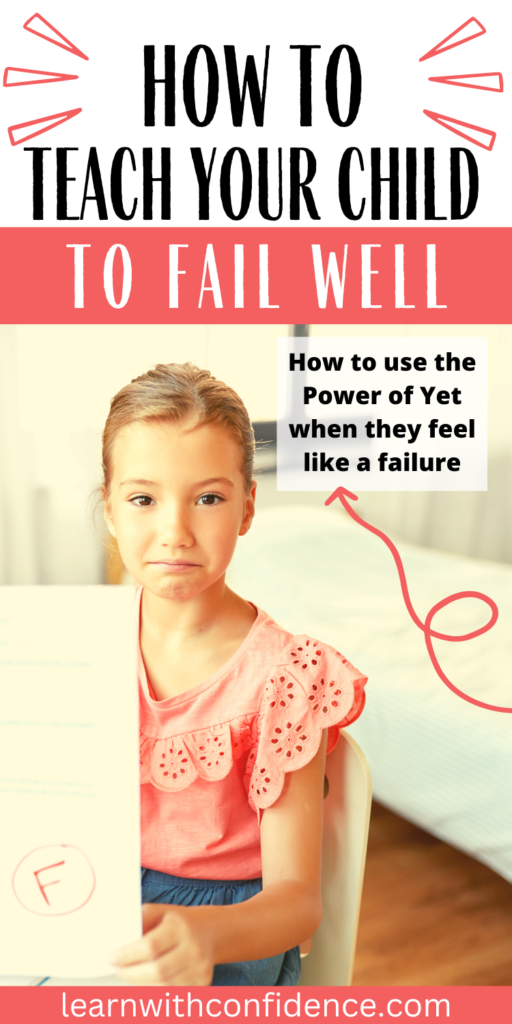
What is making your child feel like a failure?
So, this is the question. Because when we know what causes these feelings, then we can take action.
Here are a few reasons children feel like a failure.
Not meeting expectations
Many children have very high expectations of themselves. This may have been instilled in them from parents or teachers or by looking at the examples of older siblings or friends.
When a child doesn’t meet their expectations of themselves, or what they perceive to be the expectations of others, they feel like they’re a failure.
Even if those expectations are unreasonable for their age or stage of development or because they have yet to acquire the skills needed to accomplish that task.
We have to first teach our children to have reasonable expectations of themselves. And to be ok with achieving their potential in their own time. These are the kinds of thoughts that make our child strong and resilient as they face difficult challenges.
Comparison can be a dangerous thing.
And as parents we have to be SUPER careful of how we communicate these expectations. It’s the subtle sigh or the absent-minded remark that a sibling never struggled with that when they were the child’s age.
Having had a bad experience when they’ve failed in the past
Your reactions to your child’s first failures are so important.
Think back to their potty training days – those accidents on the floor or couch when they didn’t quite get to the loo on time. How did you react?
What about a bit later on when they were coloring in pictures. How did you react when they brought you a picture with colors that didn’t make sense, scribbled all outside of the lines?
And how about when they didn’t get the grade you thought they could achieve in that last test they did – how did you respond to that?
Bad experiences can make a child feel like a failure too.
An exasperated response from a parent, a teacher’s sarcastic comment in class, a snicker from a group of kids as they eye the grade on the top of the paper. All of these things can shape how your child handles challenges and how they overcome failure in the future.
How feeling like a failure is affecting your child’s school success
Failure is a part of the human experience. We have limits. And sometimes we try beyond those limits and we don’t succeed. Our children will experience failure in many shapes and forms.
The thing we should focus on is how to equip our children to cope with those moments.
Because when your child feels like a failure, even if it isn’t a directly-school-related topic, it’s going to affect their school success.
Here are a few ways feeling like a failure is affecting your child’s school success.
Poor self-esteem
When a child continually focuses on their failures, they can only see their mistakes, their weaknesses, their inadequacies. They begin to feel small and insignificant, like they can never be good at anything. Having a good self-esteem often results in more success in school. Building a good self-esteem in our kids is vital!
Fear of failure holds them back
If a child has a bad experience of failure in the past, they feel afraid of having that experience again. And that fear of failure will hold them back from trying new things, persevering through challenges and “putting themselves out there”. These are important parts of becoming successful in school.
Increased anxiety
Feeling like a failure can make a child feel anxious – anxious about their abilities, worried they’ll disappoint others, fearful of failing again. Learning cannot happen effectively when a child is in that anxiety response. Their brain is focused on survival because it senses danger – even if that “danger” seems irrational and absurd to us. And as a result, there’s no way they can perform the learning tasks they need to, to be successful academically. We need to connect with our child when they’re experiencing anxiety so we can help them work through those big feelings.
Avoiding challenges
School is filled with challenges: Academic challenges, social challenges, emotional challenges. If a child is afraid of failing they avoid anything that might be too challenging. They choose tasks they know they can succeed at even if they’re way below their potential. They also avoid looking like they’re struggling so they won’t ask the teacher for help, even when they need it. These things will all negatively impact their success in school.
But there is a little tool we can use to bridge the gap between where they’re at (feeling like a failure) and where they want to be (enjoying success in spite of challenges). And this little tool is so effective in transforming their mindset.
How to use the Power of Yet to overcome your child’s feelings of failure
This is the little tool I’ve been talking about: The little word “YET”.
What is the Power of Yet?
This concept comes from Carol Dweck’s theory about the Growth Mindset. When you add this little word to the end of sentences dripping with defeat, you can transform those thoughts into statements of hope.
A powerful 3 letter word that instills hope for your child.
When your child feels like a failure, it’s a bit like being in a deep pit. You can’t expect them to just jump out of it. The only way to climb out is to do it one step at a time.
That’s the Power of Yet – it can transform how our child experiences challenges and how they respond to failure.
It gives our child one step of hope at a time that they can rely on to eventually step out of feeling like a failure.
A statement like “I can’t do it” is so final, so limited, so limiting: That’s it. There’s no way to change. I can either do it or I can’t, and I can’t so there.
But when you add “yet” to the end…
It becomes “I can’t do it yet.” This ain’t the end. There’s still a chance that I could learn to do this. I might not be able to do it right now, but one day I will.
There’s a feeling of hope there. Possibility. Potential.
Examples of how to use the Power of Yet when they feel like a failure.
So here’s a quick list of ways you can use the power of yet in sentences your child utters in defeat.
- I don’t know how to do this…YET
- I can’t get this right…YET
- I can’t do fractions…YET
- I don’t know how to study properly…YET
- I just can’t get organized…YET
- I don’t know how to keep track of all my work…YET

5 Practical ways to use the power of yet when your child feels like a failure
Ok, so tell me what to actually do.
Here are 5 ways you can use the Power of Yet when your child feels like a failure.
1) Create an atmosphere in the home that uses the power of yet and fosters a growth mindset
The earlier you start, the better. Embrace and normalize failure and struggles from the beginning. From those potty training accidents to those badly colored pictures. From those frustrated little temper tantrums over shoes that would not tie properly to the zippers that would not zip up.
Those are the moments when we can speak hope over our kids. We encourage the positive things, the improvements, the progress.
“It’s ok honey, you might not be able to do it yet, but one day you will!”
“You’re still learning to tie those laces; you’ll get it right as soon as your fingers are ready.”
“You used beautiful colors – that is so creative! I know you want to color in the lines, and you’ll get there – just keep practicing.”
When they’re older, you’re going to use every opportunity to do this in your home too. But it looks a bit different: Struggles with studying or homework, a challenging friendship, coping with a difficult teacher, finding a sport burdensome, struggling to manage their time or work load.
Decide that your home will be one that praises the progress, that encourages each step of the process towards success and one where everyone can struggle, and even fail, but know it’s ok because it’s part of growing.
2) Listen carefully for moments when they express that fixed mindset
Become aware of those thoughts and feelings your child is having that keep them defeated and unmotivated. Listen to the words they speak to themselves when they find things difficult or overwhelming.
Listen when they’re doing homework or studying. Be aware when they are doing chores or even when they’re gaming! Listen when they talk about interactions with peers and teachers.
What does your child believe about themselves? What do they think about themselves when they struggle and when they fail?
3) Validate your child’s feelings
Before we can jump in and correct those thoughts that are defeating our child, we need to validate the feelings they do have currently – where they’re currently at.
There are no bad feelings!
Maybe your child is experiencing frustration, hopelessness, defeat, sadness, feeling like a failure. These aren’t comfortable feelings. They don’t feel good in our bodies. But they’re completely real to your child and they should be acknowledged.
“I’m sorry you feel so hopeless right now”
“I can imagine this must feel very frustrating to struggle with this homework”
“I hear you’re feeling like you’re failing at everything.”
Being heard and seen, acknowledged, invites our children to be more aware of their own feelings and helps to empower them to take action.
Then we can offer some hope to them.
4) Help your child reframe those statements to overcome their feeling of failure.
It’s finally time to start reframing those negative thoughts into empowering thoughts.
Tell them all about this little word, “Yet”. And show them how to use it.
Come up with some statements you’ve heard your child say that sound defeated and hopeless and show them how to turn those around into statements of hope.
(You can use the examples in this article too!)
And then, when you hear them say something like “Ugh! I just can’t do this!”, use the opportunity to help them reframe it in a better way: “I see you’re frustrated. But before you give up, can I help you say this in a way that’ll make you feel a bit more hopeful?”
5) Model the power of yet in your own life as their parent
This is probably the hardest step to take. But it may be the most important one. We know our children are constantly watching us, how we react, how we respond. And then they copy us.
(That awkward moment when you hear your words coming out of your child’s mouth, right!?)
When you find something frustrating or you just can’t seem to get it right. What mindset approach do you employ? Fixed or growth?
What words come out of our mouths as parents?
Add on that little word YET and model for your child how to do it themselves!
The Power of Yet can boost your child’s confidence and success in school
Using the Power of Yet to help your child when they feel like a failure can transform their perspective and mindset when it comes to school and success.
When they’ve developed this skill better, they’ll be able to
- Face challenges with the right attitude
- Have the courage to ask for help
- Celebrate their successes
- See failures as an opportunity to learn and improve and try again next time
Those are the kinds of things that build our child’s self-confidence and boost their success in school.
Want to boost your child’s social emotional skills? Reading is a PERFECT way to do this!
This FREE resource is ideal in equipping you as a mom with prompts and inspiration to take story-time from just fun and cuddles to developing your child’s empathy and other social emotional skills.
Connect with me
I would love to connect with you and include you in this community of Mommies as we support each other and grow together to become the best moms we can be!
Feel free to reach out in the comments or send me an email to connect. It’s my mission to equip and empower you to help your child succeed – you are, after all, the best person for that job, because you are the expert on your child.
Save and Share this Post
Pin this image to your favorite parenting board on Pinterest and share it with your momma friends who also want their children to develop healthy social emotional skills and be successful in school.
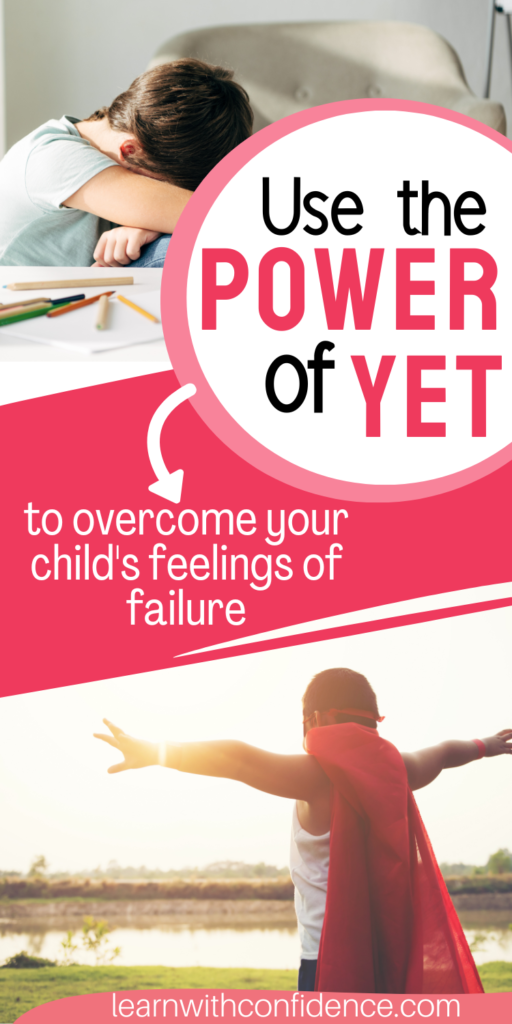

I would love to connect with you and include you in this community of Mommies as we support each other and grow together to become the best moms we can be!
Get on my emailing list here and I’ll make sure I keep you in the loop on all the latest blog posts, freebies and resources!

